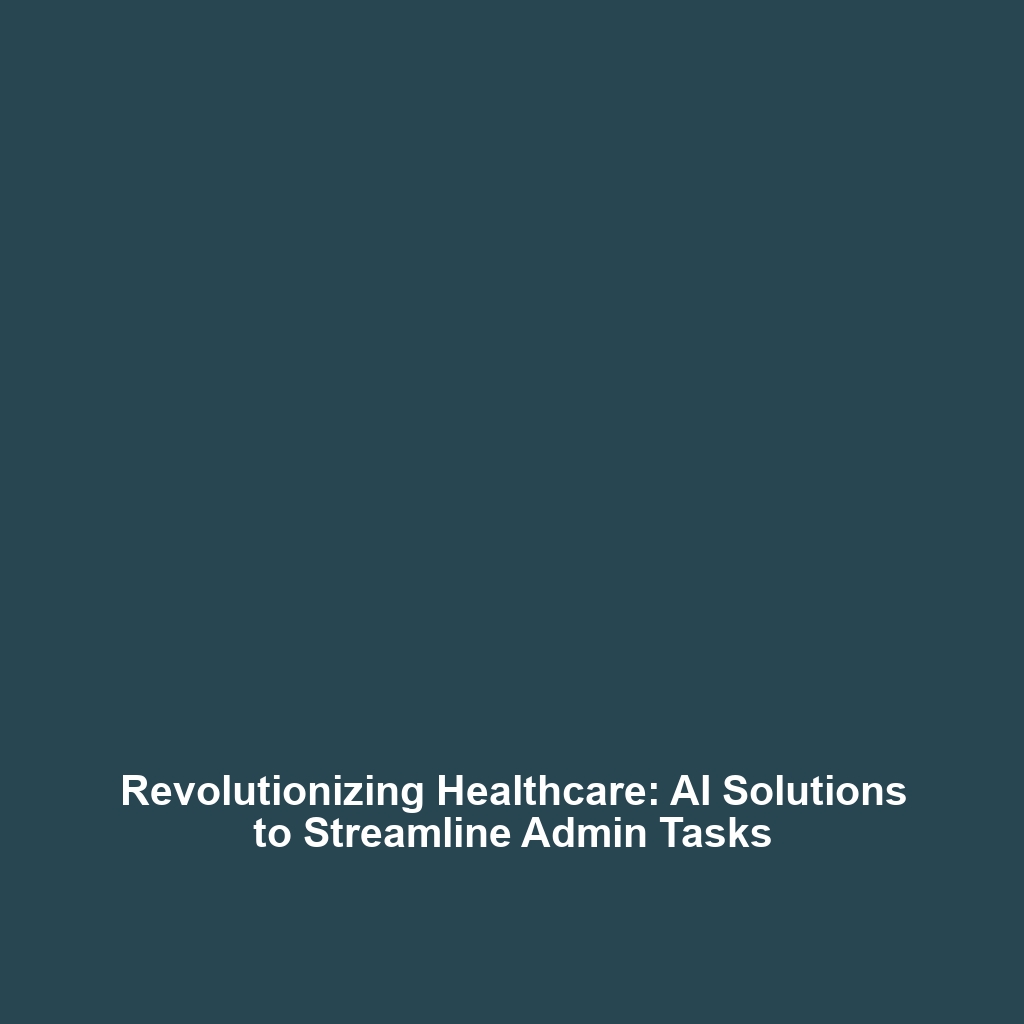How AI Helps Improve Surgical Planning and Execution by Analyzing Data in Real Time
Introduction
Artificial Intelligence (AI) is revolutionizing various sectors, and healthcare is no exception. One of the most significant advancements is its application in surgical planning and execution. By analyzing data in real time, AI enhances decision-making processes, improves outcomes, and minimizes risks for patients. In an era where precision and efficiency are paramount, understanding how AI affects surgical environments is essential for both healthcare professionals and patients. This article delves into the transformative role of AI in improving surgical procedures, making it a focal point in the broader category of AI in Healthcare.
Key Concepts
To understand how AI improves surgical planning and execution, it is essential to explore some key concepts:
Real-Time Data Analysis
AI systems can process vast amounts of data instantly, allowing surgeons to make informed decisions during operations. This capability is crucial in providing insights based on the latest patient data, imaging results, and historical surgical outcomes.
Predictive Analytics
AI algorithms can identify patterns in patient data that predict surgical success or complications. This predictive power informs strategical adjustments in real time, ultimately enhancing patient safety.
Integration with Surgical Tools
Advanced AI technologies are also integrated with robotic surgical systems. These tools leverage real-time data for improved precision, autonomy, and efficiency in performing complex procedures.
Applications and Real-World Uses
Artificial Intelligence’s role in surgical planning is evident in its practical applications, which include:
Enhanced Surgical Simulations
Through AI-enhanced simulation software, surgical teams can visualize procedures in a virtual environment, adjusting techniques based on real-time data.
Robotic-Assisted Surgeries
AI technologies have been employed in robotic surgery systems, enabling surgeons to conduct minimally invasive procedures with greater accuracy and lower recovery times.
Data-Driven Decision Making
Hospitals and clinics utilize AI to analyze patient histories, ensuring that surgical plans are tailored to individual needs, significantly improving care standards.
Current Challenges
Despite the hopeful trajectory of AI in surgical planning, several challenges remain:
- Integration Issues: Combining AI solutions with existing hospital systems can be complicated and may require additional training for staff.
- Data Privacy Concerns: The collection and analysis of patient data raise ethical issues surrounding privacy and consent.
- Algorithm Bias: AI algorithms must be trained on diverse datasets to avoid any inherent bias, ensuring equitable treatment for all patient demographics.
Future Research and Innovations
Looking ahead, several research areas and innovations are poised to impact AI’s role in surgical planning:
Machine Learning Enhancements
Advancements in machine learning will enable AI systems to evolve, continuously improving decision-making capabilities.
Next-Generation Surgical Robots
Future surgical robots equipped with sophisticated algorithms will likely enhance precision and adaptability during complex procedures.
Augmented Reality Interfaces
Innovations in augmented reality may provide surgeons with real-time overlays of critical data during operations, leading to better outcomes and reduced complications.
Conclusion
In summary, AI’s capacity to improve surgical planning and execution through real-time data analysis signifies a monumental shift in healthcare. As these technologies continue to advance, patients can anticipate enhancements in surgical safety and effectiveness. To better understand how these innovations shape a healthier future, explore our related articles on future technologies in AI in Healthcare and challenges facing AI in healthcare.
